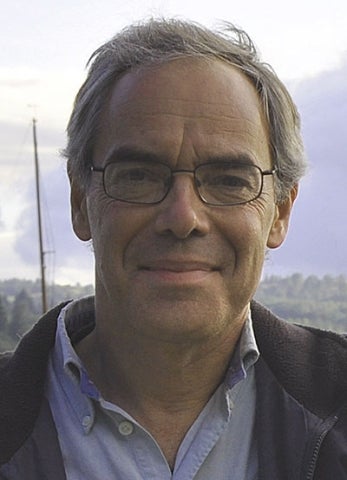John Parrotta ’83 M.S. ’83 For, ’84 M.Phil, ’88 Ph.D., who serves as national research program leader for international science issues with the U.S. Forest Service, this week was named president of the
International Union of Forest Research Organizations (IUFRO).
His term will run until the 2024 IUFRO World Congress in Stockholm, Sweden. IUFRO is the only worldwide organization devoted to forest research and related sciences. Its members are research institutions, universities, and individual scientists as well as decision-making authorities and other stakeholders with a focus on forests and trees.
Speaking at the 25
th IUFRO World Congress in Brazil, Parrotta emphasized the critical role of the forest science community in the face of global challenges.
“The world needs what IUFRO has to offer,” he said. “However, the sustainable development challenges we face are multi-faceted, and extend beyond the traditional and even current scope of forest science. The good news is that we are not alone. IUFRO can multiply its impact by expanding our collaboration in research, science synthesis and communications well beyond the boundaries of our current network.”
Parrotta has engaged in a variety of forest science research activities worldwide over the past three decades, including research conducted in Puerto Rico and Brazil. His particular area of interest is tropical forest ecology, the ecology and management of planted forests, forest restoration, and traditional forest knowledge. He is the author of more than 175 science publications and is a member of the editorial board of several international forest science journals.
As a student at F&ES — where he was one of the first fellows of the
Tropical Resources Institute — Parrotta conducted seminal research on fuelwood biomass on fast-growing plantations in Puerto Rico. After Yale, he returned to San Juan to work as a research scientist at the University of Puerto Rico before he joined the U.S. Forest Service, where he did some of the first and most highly cited research on the conversion of tree plantations to young second-growth forests in the tropics.
Since 2001 he has been based at the Forest Service’s headquarters in Washington, D.C., providing scientific and technical advice for the development of U.S. policy positions in a variety of international forest-related fora, including the Convention on Biological Diversity, the UN Forum on Forests, and the Intergovernmental Science-Policy Platform on Biodiversity and Ecosystem Services.
Over the next five years he plans to increase collaboration between IUFRO and scientists and research networks with whom, he says, IUFRO is not sufficiently engaged. These efforts could include, for instance, fields such as agriculture, human health, spatial planning, environmental engineering, environmental education, the arts and humanities.
“Diversity is IUFRO’s strength,” he said, “The productivity, health, and the many benefits we derive from forests are underpinned by biodiversity. Similarly, IUFRO’s scientific excellence and value to society depend on engaging the diversity of disciplinary perspectives, knowledge, experience, and cultural values among our scientists and member organizations.”
 John Parrotta
John Parrotta